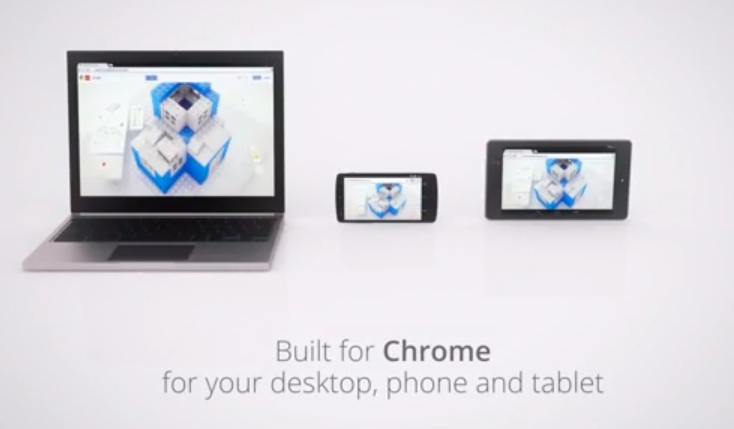If you're a LEGO fanatic like we are, you're going to love what the software engineers at Google and LEGO have developed: a 3D modeling tool that uses LEGO's iconic pieces as the building blocks.
The developers call it "the largest LEGO set the world has ever seen."
The free application, called Build, allows Chrome browser users to create virtual 3D structures using any shape and color in the LEGO catalog. Users can build LEGO structures on any plot in the world, using a PC or mobile device.
LEGO models can be saved and shared with other users. They can also view creations dreamt up by other builders.
The site includes the Build Academy, which puts users through a series of building challenges in different locations, with the goal of attaining LEGO Master Builder status. Along the way, players can unlock new LEGO bricks and colors.
OK, enough talk. Give it a try! http://www.buildwithchrome.com.
Related Stories
Architects | Jun 2, 2017
NELSON joins forces with Cope Linder and KA
More growth ahead, as NELSON expects to double its workforce and revenue this year.
Office Buildings | Jun 2, 2017
Strong brew: Heineken HQ spurs innovation through interaction [slideshow]
The open plan concept features a Heineken bar and multiple social zones.
| Jun 2, 2017
Accelerate Live! talk: How maker culture is transforming Sasaki’s design practice
Sasaki’s Pablo Savid-Buteler and Brad Prestbo talk about how the firm’s maker initiatives are changing the way Sasaki goes to market, and how they are helping the firm win new business.
| May 30, 2017
Accelerate Live! talk: The ROI of innovation culture, Russ Sykes, SmithGroupJJR
Russ Sykes discusses SmithGroupJJR’s ongoing journey to create a firm culture that ignites innovation and propels change across all levels of the organization.
| May 30, 2017
Accelerate Live! talk: Finding the money for your clients' projects, Paul Westlake, Jr., DLR Group|WRL
Architect Paul Westlake, Jr., shares his methods for adding value to projects through creative financing.
| May 30, 2017
Accelerate Live! talk: Health-generating buildings, Marcene Kinney, Angela Mazzi, GBBN Architects
Architects Marcene Kinney and Angela Mazzi share design hacks pinpointing specific aspects of the built environment that affect behavior, well-being, and performance.
Daylighting | May 30, 2017
Sun, sky brightness, and glow: Making the most of daylight [AIA course]
To some project teams, “daylighting” means using glass area to admit direct sunlight, period.
Security/Fire Protection | May 30, 2017
Security begins when you close the door [AIA course]
Selecting door and window systems for any building project demands a complete articulation of safety and security concerns.
Codes and Standards | May 30, 2017
Industry Groups move toward Unified Green Building Model Code in 2018
The effort involves combining ASHRAE's Standard 189.1 with the International Green Construction Code.
Codes and Standards | May 30, 2017
Florida preparing to adjust to new building elevation requirements
New floodplain maps and state code changes loom.










![Strong brew: Heineken HQ spurs innovation through interaction [slideshow] Strong brew: Heineken HQ spurs innovation through interaction [slideshow]](/sites/default/files/styles/list_big/public/OPENER%20Screen%20Shot%202017-06-02%20at%2011.33.34%20AM.png?itok=VNxuazkX)
![Sun, sky brightness, and glow: Making the most of daylight [AIA course] Sun, sky brightness, and glow: Making the most of daylight [AIA course]](/sites/default/files/styles/list_big/public/datylight.jpg?itok=akEDpIQ8)
![Security begins when you close the door [AIA course] Security begins when you close the door [AIA course]](/sites/default/files/styles/list_big/public/security.jpg?itok=NVwecLpz)






